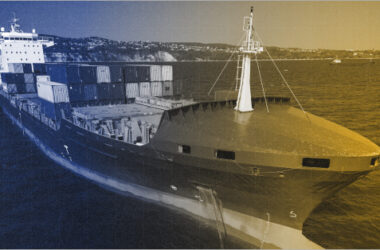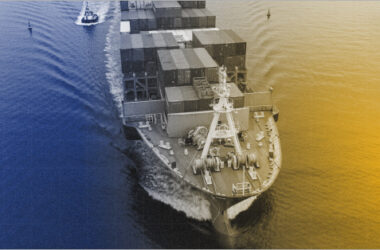Marine Insurance has been the silent partner to both global and local trade. It may be the transport of goods over oceans or a truck transporting the goods between Chennai and Delhi, but, one common concern remains- it is the risk of losing or damaging goods during the transportation. To address these uncertainties, Marine Insurance policies are introduced, which are supported by certain terms and clauses that determine the extent of protection. International Cargo Clauses (ICC) and Inland Transit Clauses (ITC) are among them and they play a pivotal part in deciding how, when, and to what extent goods are covered.
This blog unravels the mysteries behind these clauses, and how they protect the traders, manufacturers, and logistics operators against uncertainties. Read on!
Marine Insurance Clauses: In Brief
In its fundamental meaning, a Marine Insurance clause is a written provision contained in an insurance policy which specifies the risks covered, exclusions, the obligations of the insured and the liabilities of the insurer. These provisions serve as the ‘user manual’ for the insurer-insured relationship. In their absence, the insurance coverage would be unclear, and settlement of claims will be a mess.
Such contracts are regulated by the Marine Insurance Act, 1963 in India, which harmonizes local practices with international ones. The exporters, importers, transporters and even banks are some of the stakeholders who depend on such clauses to make sure that the goods are legally safeguarded once they leave the warehouse and until they are delivered to their destination.
These clauses provide accuracy, openness and enforceability of the Marine Insurance Policy as both parties have a clear understanding of the covered risks as well as the risks that are excluded.
International Cargo Clauses: An Overview
In case of international trade, the Marine Insurance policies are often regulated by globally accepted standards referred to as the Institute Cargo Clauses (ICC). The Institute of London Underwriters (ILU) formulated these clauses, which are commonly used by insurers across the world, and India is no exception.
ICC terms are designed to harmonize the coverage of cargo shipped by sea, air or land. They offer a common language that is understood by all parties involved in exporting, importing or by the insurers. Marine Insurance policies are issued by Indian insurers on the basis of these clauses, which guarantee international compatibility.
Different Types of Institute Cargo Clauses (ICC)
1. Institute Cargo Clauses (A): All Risks Coverage
ICC (A) offers the widest scope of coverage that is provided in marine insurance. It includes all risks of loss or damage to the insured cargo except where specifically stated. This implies that products are insured against nearly all external factors, such as theft and damage upon handling, to natural disasters.
It, however, does not include loss caused by delay or inherent vice (defect in goods) or ordinary leakage. Companies that export delicate goods or expensive products, such as electronics, pharmaceuticals, or machinery, tend to use ICC (A) for comprehensive protection.
2. Institute Cargo Clauses (B): Named Perils Coverage
This clause covers a list of specially enumerated perils including fire, explosion, sinking of a vessel, collision, discharge at a port of distress, earthquake or volcanic eruption. Whereas ICC (B) provides less coverage than ICC (A), it remains an appropriate option to the companies who demand a moderate coverage at moderate premium.
ICC (B) is typically cost-effective for industries that do not ship fragile products ( such as textiles or processed foods).
3. Institute Cargo Clauses (C): Limited Coverage
ICC (C) represents the most basic type of protection, which includes only significant perils like fire, explosion, grounding of vessels, collision or overturn of the transport vehicle. It excludes partial losses or theft.
ICC (C) is favored by small exporters, or those handling bulk commodities such as minerals, coal or steel where the value-to-volume ratio is low. This way, they can manage their insurance expenses.
International Cargo Clauses: Key Features
- Warehouse-to-Warehouse Cover: ICC policies usually cover goods from the moment they leave the warehouse until they are delivered to the final destination.
- Global Acceptance: These clauses are internationally recognized, simplifying trade across borders.
- Flexible Duration: Policies can be customized for single voyages or continuous open cover agreements.
- Defined Exclusions: Excludes inherent vice, delay, war, strikes, or intentional misconduct by the insured.
- Good Faith Principle: The insured must disclose all material facts—route, cargo type, packaging, and storage conditions.
All these features render ICC an inseparable part of the exporters and importers of complex logistics chains on the global scale.
Inland Transit Clauses: From an Indian Perspective
While ICC regulates shipments on an international level, Inland Transit Clauses (ITC) are designed to cover goods shipped inside the borders of India, by road, rail, air, or inland waterways.
Since India is a very large country with a wide range of logistics networks, inland transit insurance is very important in ensuring that goods are not lost or damaged when they are being transported within the country. Manufacturers, distributors and logistics companies that move goods between warehouses, factories and retail outlets commonly use these clauses.
Different Types of Inland Transit Clauses (ITC)
1. Inland Transit Clause (A): All Risks Coverage
ITC (A) is similar to ICC (A) in that it offers total insurance against all accidental physical losses or damage of goods in transit. ITC (A) will fully indemnify (subject to policy terms) whether the goods are stolen, mishandled, or damaged because of an accident.
It best fits the high value products like electronics, automotive parts, or delicate products transported through Indian highways or rail routes.
2. Inland Transit Clause (B): Restricted Perils Coverage
ITC (B) includes only certain perils such as fire, explosion, collision, derailment, or overturning of the vehicle. It does not include minor mishandling or breakage losses.
This clause provides a balance between price and coverage and is therefore suited to medium-value goods with low chances of receiving a total loss.
3. Inland Transit Clause (C): Basic Perils Coverage
The ITC (C) offers the least coverage whereby it only covers goods in the event of major accidents such as collision, derailment, or overturning.
It is commonly used by bulk commodity traders, such as cement, grain, or coal, who are more worried about overall loss, but not as much about a minor loss or damage.
International Cargo Clauses vs. Inland Transit Clauses : A Tabular Comparison:
| Criteria | International Cargo Clauses (ICC) | Inland Transit Clauses (ITC) |
| Scope | Global transport (sea, air, land) | Domestic transport (road, rail, air) |
| Legal Framework | Institute of London Underwriters | Indian insurers under IRDAI |
| Coverage Types | ICC (A), (B), (C) | ITC (A), (B), (C) |
| Duration | Warehouse-to-warehouse, including sea transit | From dispatch to delivery point within India |
| Premium Level | Higher due to wider coverage | Lower, based on inland risks |
| Claims Complexity | International documentation, customs, surveyors | Domestic claim procedures, simpler verification |
While both clauses share structural similarities, their applications differ drastically due to geographical scope and risk exposure.
Common Exclusions Under ICC and ITC
Despite their extensive protection, both ICC and ITC come with exclusions to prevent moral hazard and ensure fairness. Some of the key exclusions include:
- Ordinary leakage, wear and tear, or inherent defect in goods.
- Loss or damage due to delay, even if delay results from an insured peril.
- War, strikes, riots, and civil commotion unless additional clauses are added.
- Wilful misconduct by the insured or non-compliance with safety norms.
To extend coverage for war or strike-related risks, businesses can opt for Institute War Clauses and Institute Strikes Clauses as add-ons.
Role of ICC and ITC in Claims Settlement
The wording of the chosen clause directly influences claims admissibility and payout. For instance, an ICC (C) policy will not entertain a claim for partial damage, while ICC (A) would.
Key factors that impact claims under these clauses include:
- Accurate Declarations: Shipment details like packaging type, transport route, and cargo description must be precise.
- Timely Intimation: Insurers should be notified immediately upon loss detection.
- Supporting Documents: Bill of lading, invoice, survey report, and delivery receipts are mandatory for claim evaluation.
Insurers appoint surveyors to assess the loss and ensure the claim aligns with the clause terms. Clear documentation can significantly speed up settlements.
How These Clauses Work in Reality : A Practical Example
Imagine an Indian textile exporter shipping garments to London under ICC (A). If the ship encounters rough weather and part of the cargo is damaged by seawater, the policy would fully indemnify the exporter.
Now, consider a domestic electronics manufacturer shipping TVs from Noida to Bengaluru under ITC (B). If the truck overturns and several items are damaged, the loss would be compensated as overturning is a covered peril.
These real-world examples show how the right clause selection can determine whether a business faces a total financial loss or receives full compensation.
How to Choose the Right Clause for Your Business?
Selecting the appropriate clause is not merely a compliance decision—it’s a strategic business move. The choice depends on:
- Nature and value of goods: Fragile or high-value goods need “All Risks” coverage.
- Mode of transport: Sea, air, or road travel exposes goods to different hazards.
- Transit frequency: Regular shippers may benefit from open cover policies with ICC (A) or ITC (A).
- Budget and risk appetite: Businesses must balance coverage costs against potential loss exposure.
Consulting professional insurance brokers or risk managers can help businesses customise the coverage according to their specific operational risk profiles.
The Bottomline:
Although Marine Insurance is centuries old, it is as up to date as it was in the age of sail. These policies are supported by the International Cargo Clauses and Inland Transit Clauses, which determine the coverage, terms, and fairness of coverage.
In case of Indian business- be it exporters of goods abroad or manufacturers of goods within the country, it is important to have knowledge of these clauses. It is not only about insuring goods, it is a question of continuity of business- when the unexpected takes its toll.
The inclusion of the appropriate clause, either ICC (A) or ITC (A) will help companies to sail through the turbulent waters and rough roads without any fears. This is because the company is assured of protection of its cargo throughout the entire delivery process.







